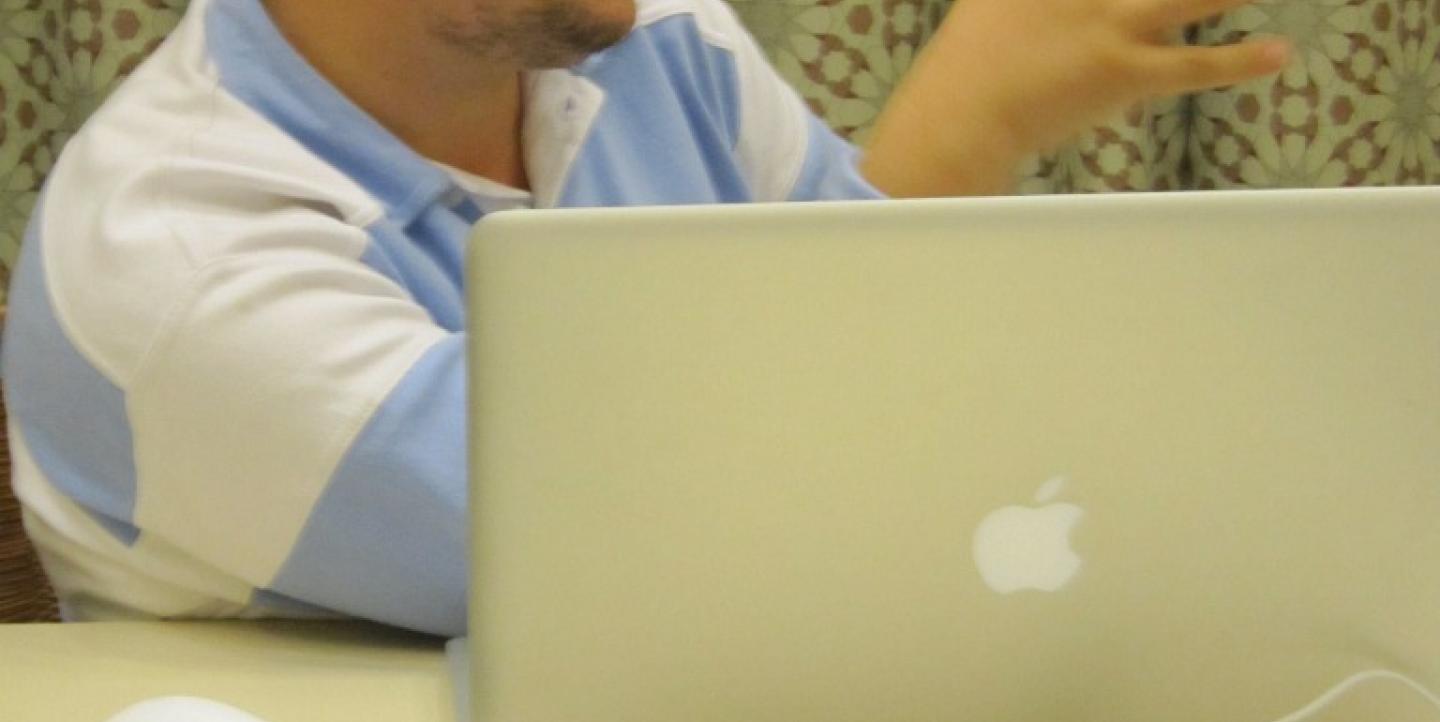Each month, IJNet features an international journalist who exemplifies the profession and has used the site to further his or her career. Nominate yourself, or someone else, by sending a bio (under 150 words) and how the site has helped you here.
This month's journalist is Nassim Lakehal, an online journalism consultant from Algeria.
IJNet: Where do you work now? Where have you worked in the past?
N.K.: I am currently working as a digital media consultant for Al-Yaum, the website for a Saudi newspaper. Along with my colleague Bashir Rahmani, we relaunched a new version of it in January.
Previously, I worked for several media organizations, including daily Algerian newspapers Echorouk and Al-Sabah Al-Jadid. I was also in charge of El-Khabar’s newspaper’s website. I have worked extensively as a correspondent from Algeria for a number of regional and international media organizations including Kuwaiti newspaper Al Qabas, Radio Sawa and MBC.
However, my longest professional experience was working for newspaper Echorouk. I worked with them from their first issue on, then as their online editor in 2005 to 2009...
I also recently celebrated the launch of the Gate of the Algerian press, a website I created with Rahmani.
IJNet: How have you used IJNet?
N.K.: I was introduced to IJNet in 2008. It was a turning point in my career. It gave me the opportunity to participate in a couple of online courses with ICFJ, one on building news websites and the other on freedom of expression in the age of digital media.
IJNet: Did you work in a different field before pursuing journalism?
N.K.: I have spent my whole career in media. I permanently dived into it at the end of 2000 and started as a reporter covering political issues for Echorouk. I'm currently also working on a Master's degree in journalism, working on a thesis titled "Information from security sources in the Algerian press."
IJNet: Tell us about your website. Were there any technical challenges?
N.K.: I'd had the idea on my mind for years. I wanted to build a website specialized in journalism affairs and new media. We officially launched our website on June 11, 2010. Some colleagues asked us to expand it to be a more comprehensive news site, but we explained that our main goal is to create a website specialized in media matters.
We have not had any technical problems. Bashir Rahmani, a co-founder, is one of the top engineers in the field of programming and web design. We recently signed a contract with an specialized institution to increase our digital safety, following the increase in our website traffic.
IJNet: Does the website generate enough income for you to live on?
N.K.: The site does not currently have any advertising income. We cover the costs from our own pockets. What concerns us now is developing the site and maintaining its growth. In fact, a lot of colleagues ask us about our funding sources and we tell them: we want to increase website growth website first. In this regard, we are not in a hurry. Our hope is that the site will be successful.
IJNet: What stories are you most proud of?
N.K.: I am proud of several stories. I worked on a lengthy story about The National Observatory for Human Rights. It became the talk of the town in 2001 and another investigative report published as a series of eight stories on poverty in Algeria along with my colleague Marwan Baltarsh.
I am also proud of an investigative story centering on a case of mistaken identity. An official working in a ministry in Algeria whose life became a living hell because he had the same name as a terrorist the authorities were searching for. We discovered through the investigation that "Abdul Hamid" was not only a victim of name resemblance, but also a victim of a plot hatched by vested by interests [of people in power].
I also worked with the team of Echorouk to cover the so-called "trial of the century" in Algeria, the Khalifa Bank scandal, the biggest financial fraud in the history of the country. After our coverage of this trial, my colleague Ramadan Belamre and I were entrusted to write a book about it that we called "Khalifa’s Earthquake" [...]. However, some people intervened and the project was aborted before it made it into print, we hope it will see the light in the future.
IJNet: What advice would you give aspiring journalists?
N.K.: Make sure that your conscience and professionalism are not for sale, no matter what the circumstances -- otherwise it is better for you to move out of this field as far as possible, because [journalism] carries more responsibility than a simple job. Do not let fame be your major concern, but ask yourself: "What can I give to this profession?" [...] Every word you write or broadcast or publish will be carved into a history that will not be forgiving.

